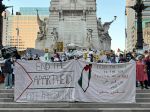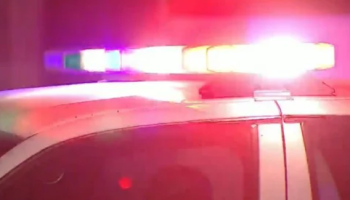HONG KONG — Hong Kong will postpone legislative elections due to be held in September because of the coronavirus outbreak, the city’s leader said Friday.
In a news conference, Hong Kong’s Chief Executive Carrie Lam said the move to postpone the Legislative Council elections, slated for September 6, was the most difficult decision she had made in the last seven months. She added that she had the support of the Chinese central government in making this decision.
Lam said the delay was needed to protect public health and guarantee fairness in the election.
Infections from the virus have quickly risen in recent weeks, after falling to zero daily transmissions in June, and health officials have warned of a potential crisis if it is not brought under control.
But pro-democracy figures had greeted news of a possible delay to the key polls with dismay, accusing the government of wanting to avoid a potential loss following China’s imposition of a new national security law on the city, banning secession, subversion, terrorism, and collusion with foreign forces.
Opposition parties had aimed to ride a wave of discontent with the government to a historic victory in the semi-democratic legislature, where just under half the seats are controlled by so-called functional constituencies, which represent business and society groups and are typically pro-government.
A recent primary election designed to narrow down the number of pro-democracy opposition candidates attracted more than 600,000 votes, far more than the 170,000 or so organizers were hoping for. The turnout attracted the ire of Beijing, however, which suggested the vote was illegally interfering with the upcoming poll.
Last year, pro-democracy candidates won a landslide victory in local council elections. A similar result in the legislative council could put them in a position to force a constitutional crisis by blocking the budget and pressuring Lam to resign. Both the Chinese and Hong Kong governments have suggested such a plan could be illegal under the new national security law.
This week, a dozen pro-democracy candidates were barred from standing for election, including prominent activist Joshua Wong.
In a statement, the Hong Kong government said it supported the decisions by returning officers to “invalidate 12 nominees for this year’s Legislative Council (LegCo) General Election.”
It said the candidates had been barred on the grounds that they would not uphold the Basic Law, Hong Kong’s de facto constitution, and suggested more could be disqualified in future.
The government said it “respects and safeguards the lawful rights of Hong Kong people, including the right to vote and the right to stand for elections.”
Several letters posted online by disqualified candidates from returning officers informing them of their decision cited previous opposition to the security law as a reason for the move.
“The excuse they use is that I describe (the security law) as a draconian law, which shows that I do not support this sweeping law,” Wong said.
Another disqualified candidate, Dennis Kwok, was reportedly barred because of his having expressed an intention to use his position as a legislator “in such a way as to force the government to accede to certain demands,” effectively the job of an opposition lawmaker in most democratic countries.
The Inter-Parliamentary Alliance on China, which represents lawmakers in multiple countries including the United Kingdom, Australia and Canada, said the disqualifications, as well as the delay to the election, “represent unacceptable obstructions of the democratic process in Hong Kong and raise further concerns about the erosion of rights and freedoms in the city.”













